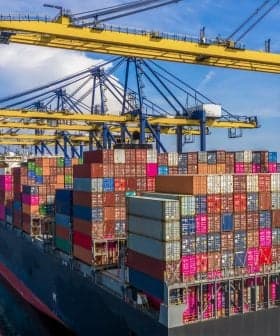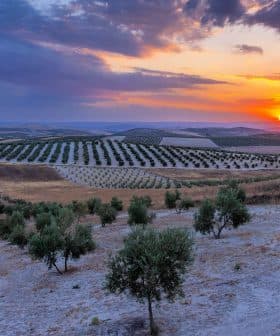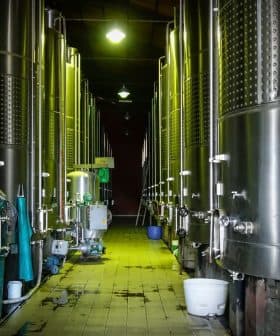New Olive Oil Production in the Canaries
The Government of the Canary Islands is actively developing olive trees for oil production, with successful experiences in extraction and plans to expand the program to other parts of the archipelago. The initiative aims to diversify the agricultural economies of the islands and capitalize on the favorable weather conditions for olive cultivation in the region.
Government of the Canary Islands Furthers Commitment to Develop Trees for Olive Oil Production
The General Director of Agriculture for the Government of the Canary Islands, Mr. Domingo Bueno, recently visited experimental olive groves that were part of a pilot project initiated in 2005 aimed at the eventual production of olive oil in the islands. The olive plantations belong to the Cumbres de Abona Cooperative and the president of that entity, Mr. Manuel Marrero, was on hand to meet with Mr. Bueno to discuss current developments and future plans for the olive groves
located in Arico, Tenerife.
Now some 5 years after the implementation of the pilot program, the Canary Islands has amassed some 40,000 olive oil trees and has undergone 12 highly successful experiences in olive oil extraction. The product has been sold and consumed locally and boasts two highly sought after organoleptic characteristics of extra virgin olive oil: smooth flavor and an intense aroma.

The program is now being carried out in other parts of the Canary Island archipelago such as Granadilla de Abona, Agüimes (in Gran Canaria) and Fuerteventura. The initiative has received Mr. Bueno’s full and continued support and promises to diversify the agricultural economies of the islands: “The project offers an interesting and promising crop due to the favorable weather of the archipelago, the high quality and quantity of olive oil production on the island, and the fact that these trees require very little water – all of which will help to diversify the available food products here in the Archipelago.”[1]
The olive project which began in Tenerife South started with the identification and expansion of a number of Acebuche trees: a wild, centennial olive tree which grow naturally in the region’s valleys and produce uniquely large quantities of olives. In a mere 5 years, these trees have become highly productive and widespread. The initiative will now turn to marketing this olive oil from the Canary Islands and will become the first olive oil ever launched into the native market
and exported elsewhere.
The Canary Islands, colloquially also known as the Canaries, are a Spanish archipelago which, in turn, forms one of the Spanish Autonomous Communities and an Outermost Region of the European Union. The archipelago is located just off the northwest coast of mainland Africa, 100 km west of the disputed border between Morocco and the Western Sahara. Though the population of the archipelago is just over 2 million, more than 12 million tourists visit the Canaries each year. The sea currents that depart from Canary’s coasts used to lead ships away to America. The islands from largest to smallest are: Tenerife, Fuerteventura, Gran Canaria, Lanzarote, La Palma, La Gomera, El Hierro, La Graciosa, Alegranza and Montaña Clara.
.
.
[1] “Agricultura aboga por el fomento del cultivo del olivar en Canarias por ser ‘interesante y prometedor’” CANARIASAHORA.com









